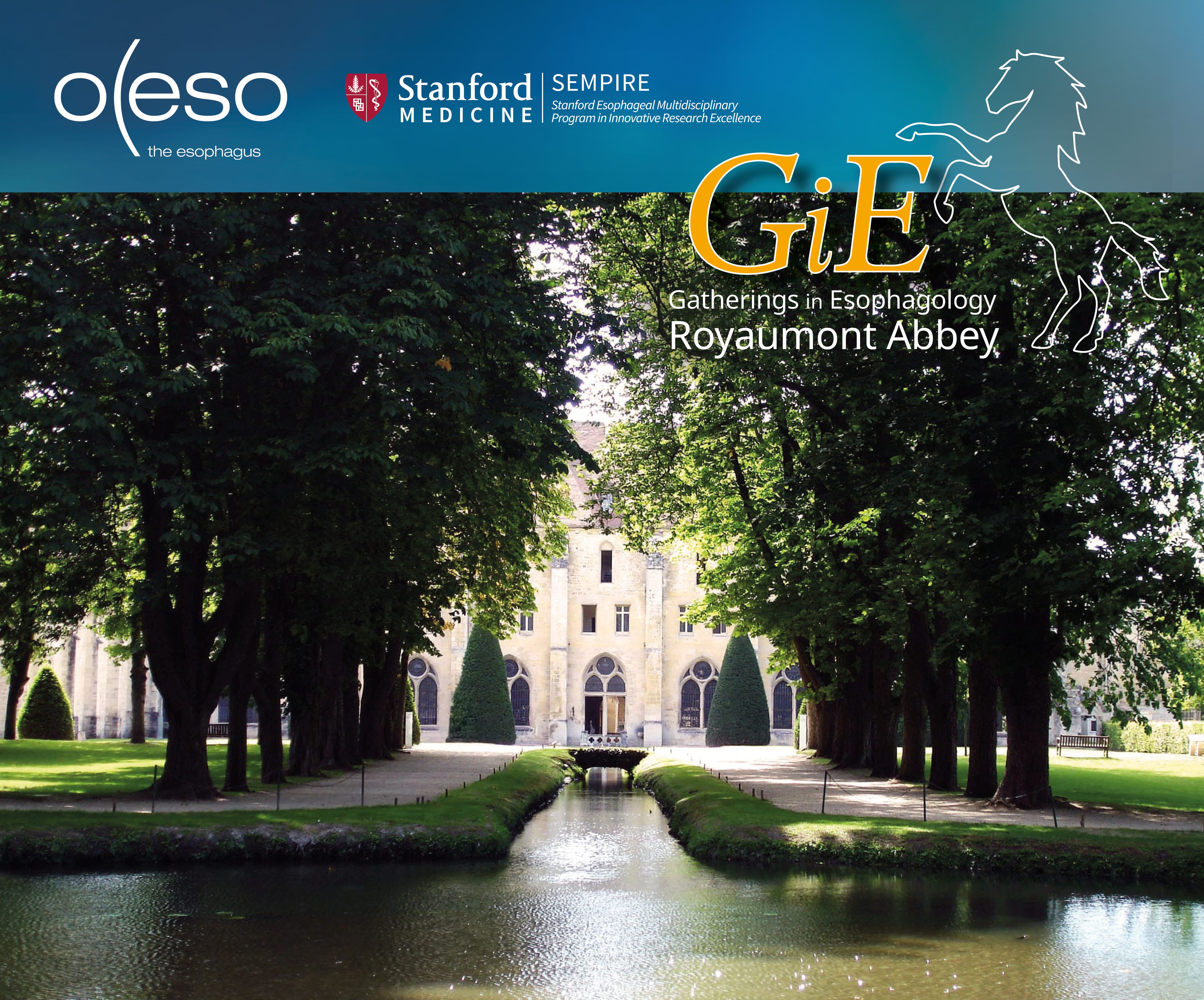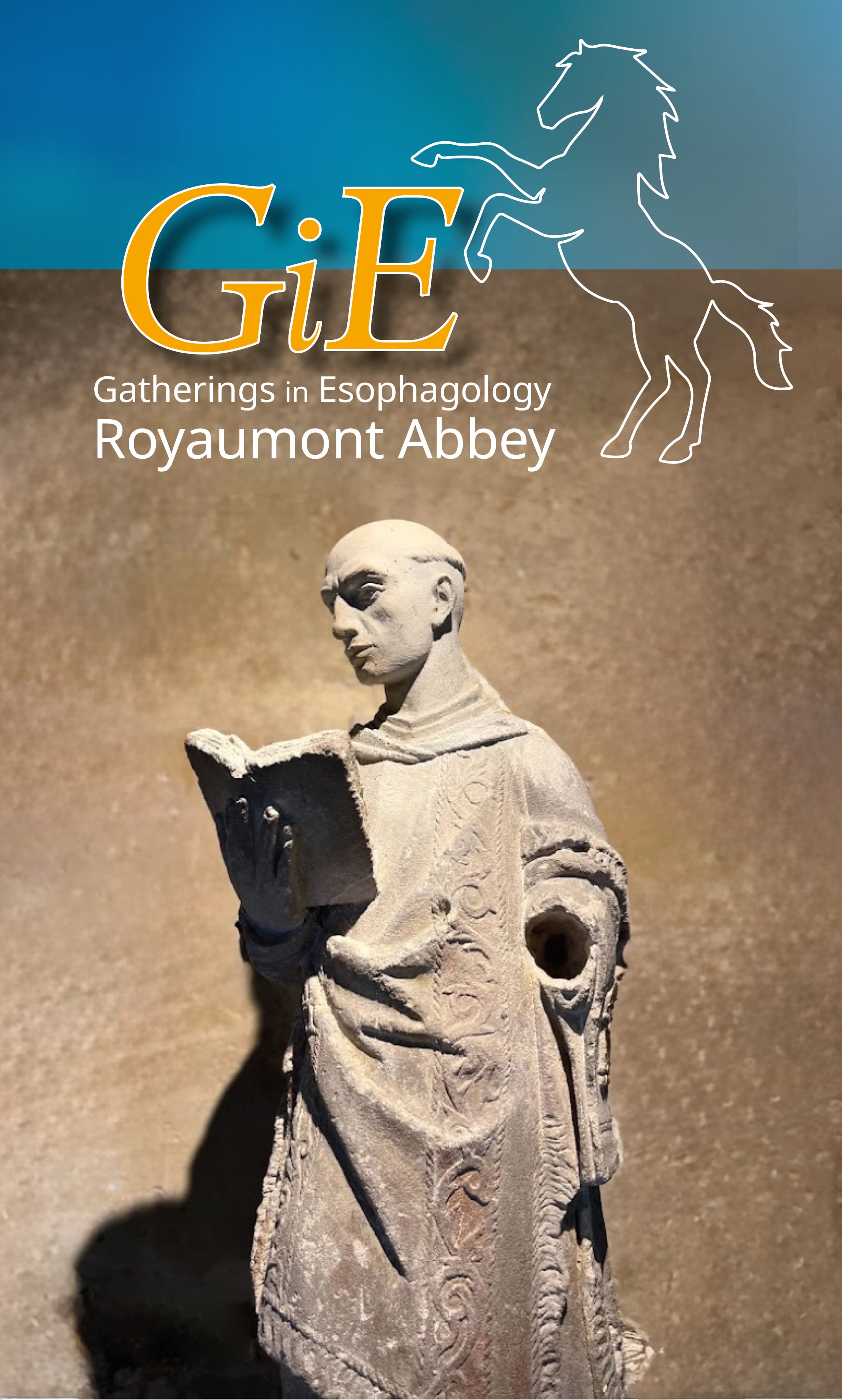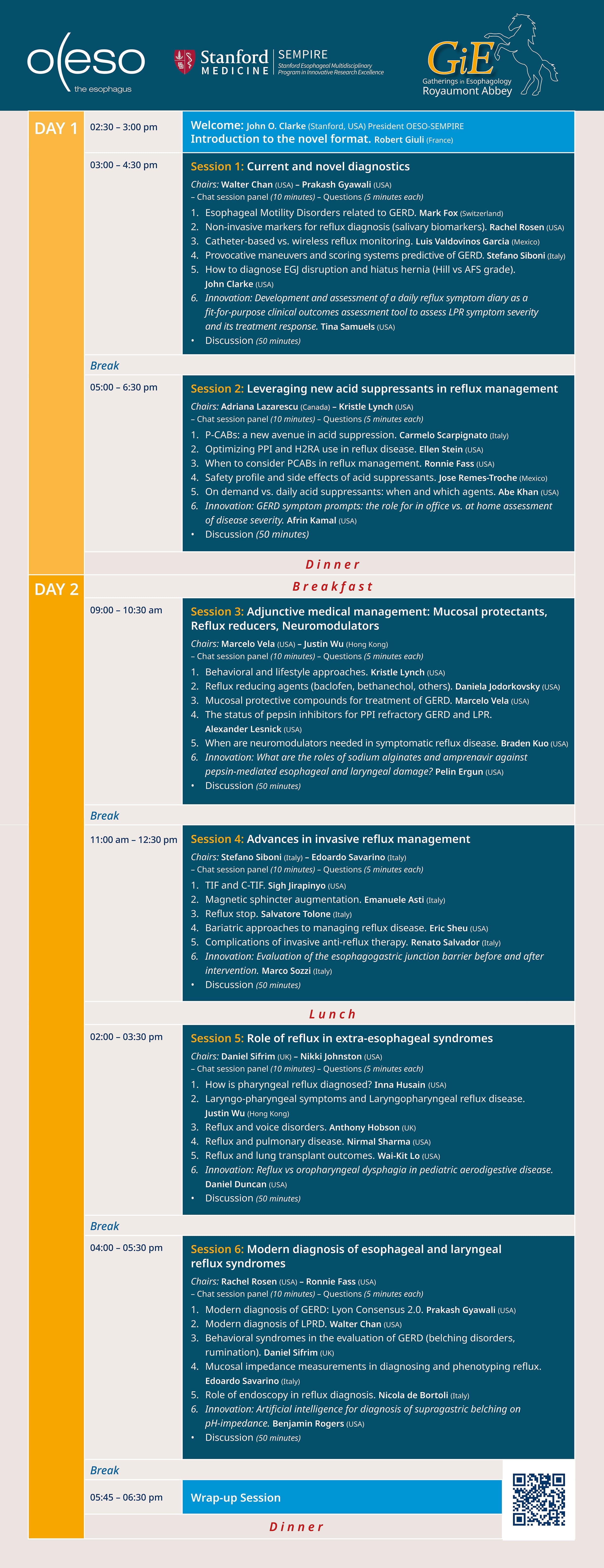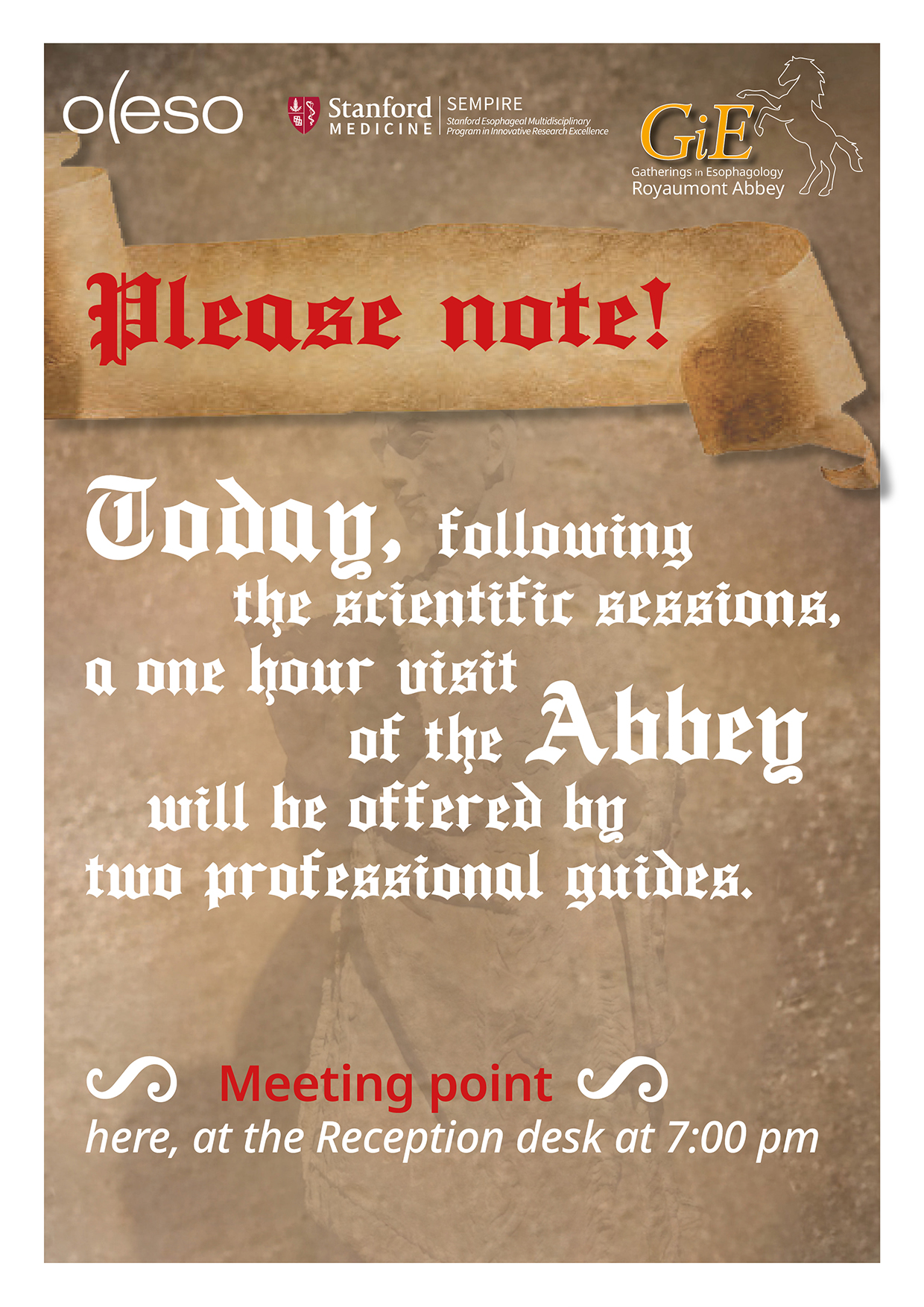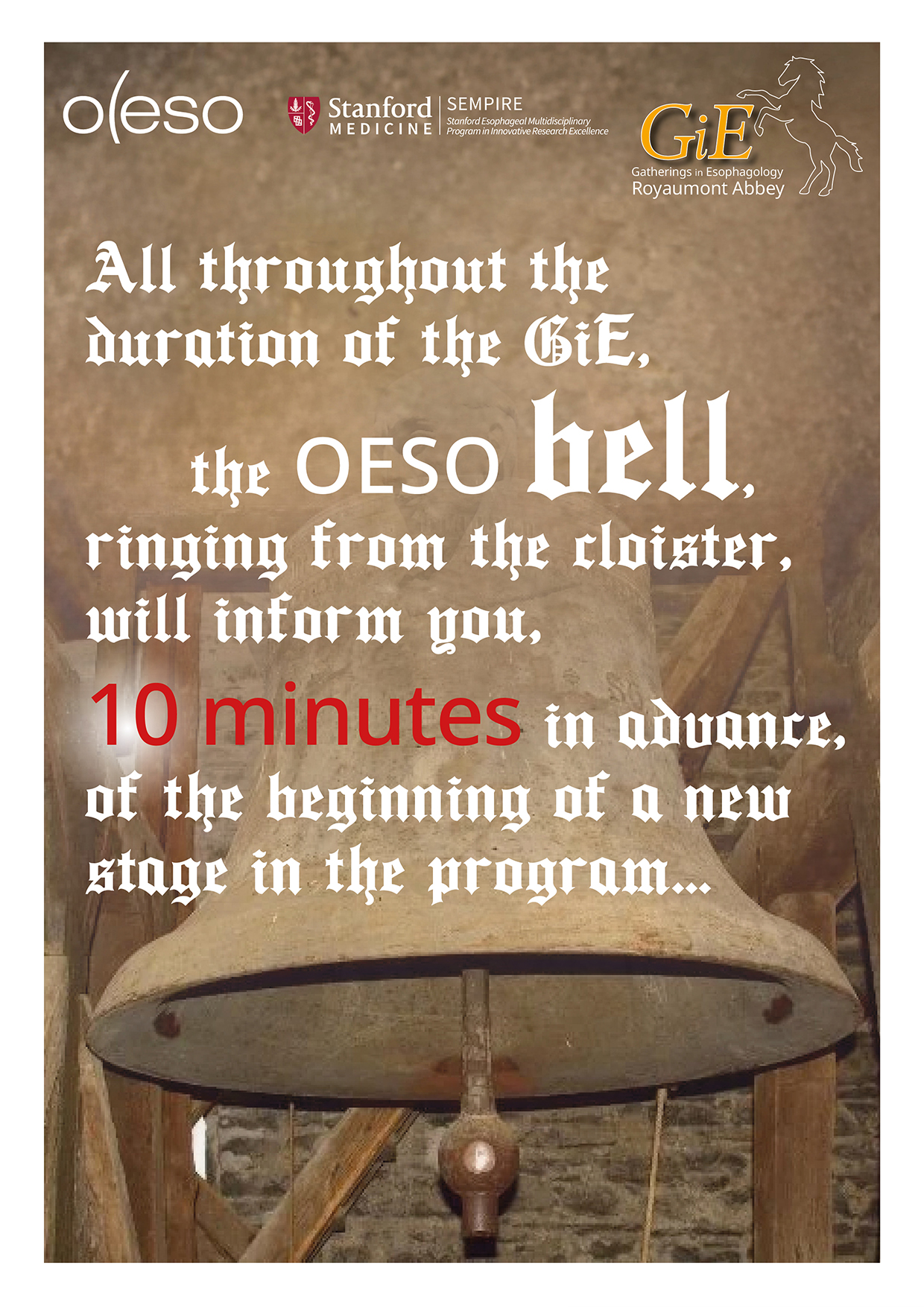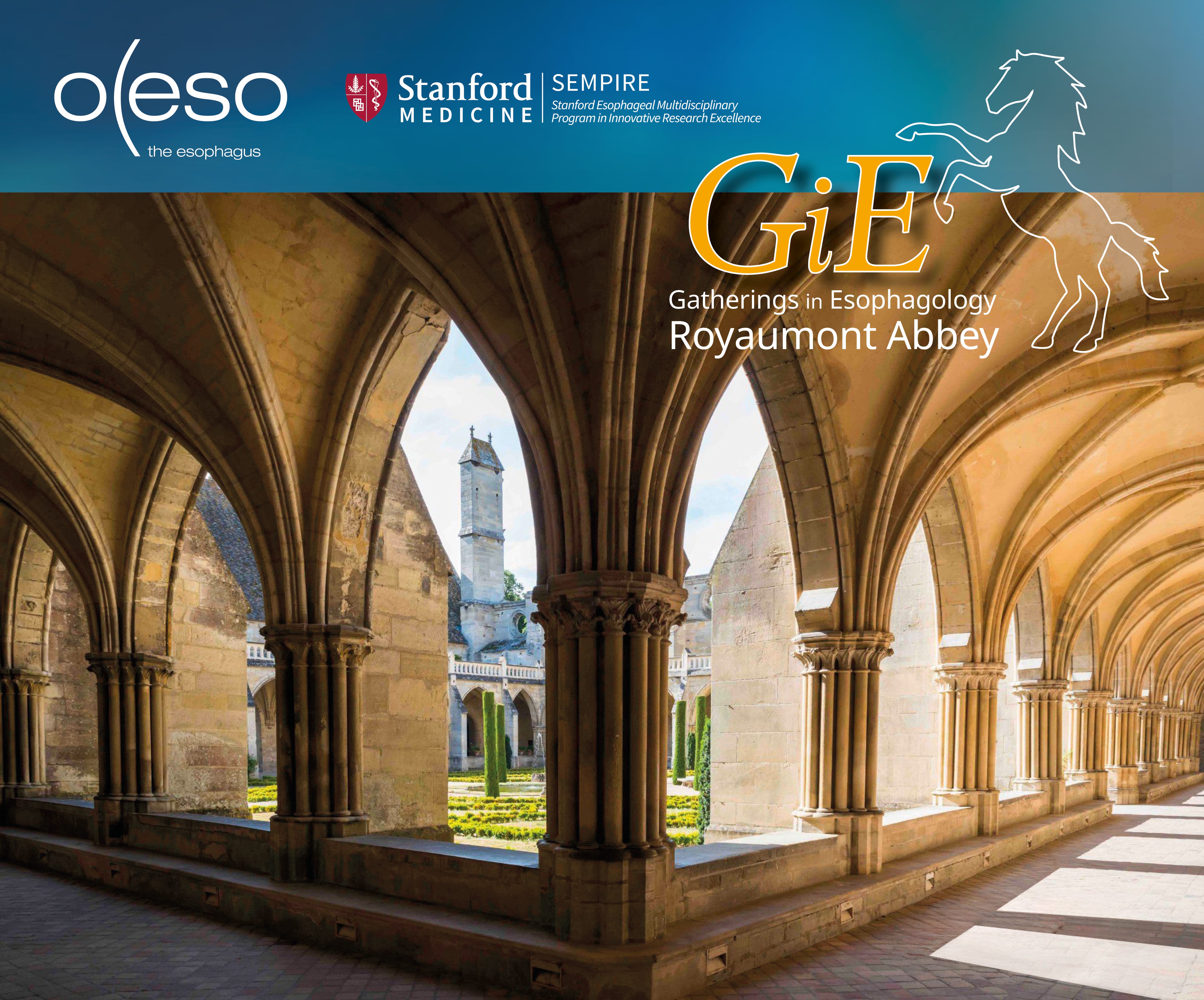1st GIE – May 30-31, 2025
The GIE is a new and original initiative from OESO.
For 36 hours, specialists of the highest level will meet in one room to listen to and discuss 36 presentations on a single topic.
This 36 hour (2 nights) event will offer an experience which will foster exchanges and interaction among a group of KOLs (key opinion leaders), in an informal country setting, the "Abbaye de Royaumont", a 13th Century Cistercian Abbey located in the heart of a forest, only 29 km from Paris.
May 30 and 31, 2025
To our knowledge, this will be
a first-of-its-kind event.
Here below is the scientific program.
We are looking forward to welcoming you to this event.
For futher information, please contact: gie@oeso.org
- Robert Giuli, MD, FACS, FCCP, Professor of Surgery, Founder & Deputy Executive Director of OESO
robert.giuli@oeso.org - Nikki Johnston, Professor of Otolaryngology, Governor of the OESO-SEMPIRE Platform
NJohnston@mcw.edu - C. Prakash Gyawali, MD, FRCP, Professor of Medicine, Washington University in St. Louis cprakash@wustl.edu

